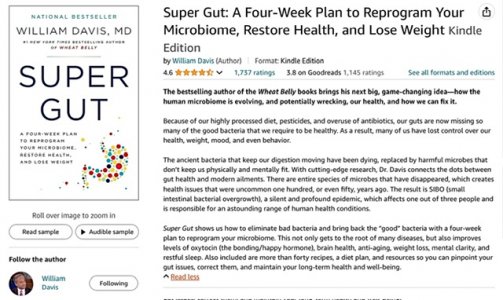bobcat
Well-known Member
- Location
- Northern Calif
Accumulating evidence suggests the brain, gut, and immune system are all linked. How you take care of the little bugs in your stomach will determine how they take care of you. It seems our gut microbes are intricately connected to our immune system, and even trains it. According to research, they can even affect brain health.
I guess the better you are at gardening that vital community, and supplying their needs, it can pay off big dividends. It's probably unwise to swallow fertilizer in the literal sense, but certainly in the figurative sense (Probiotics, fiber, etc...). Apparently taking antibiotics is like mass murder for them, but I guess sometimes that can't be helped.
Interesting revelations. It's food for thought anyway.
I guess the better you are at gardening that vital community, and supplying their needs, it can pay off big dividends. It's probably unwise to swallow fertilizer in the literal sense, but certainly in the figurative sense (Probiotics, fiber, etc...). Apparently taking antibiotics is like mass murder for them, but I guess sometimes that can't be helped.
Interesting revelations. It's food for thought anyway.


